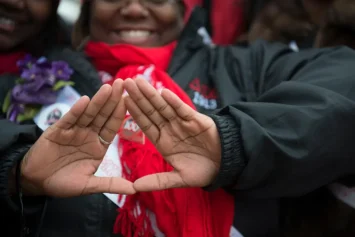Sports began on American college campuses as a way for students to blow off steam and be healthy. Over the last century and a half, athletics have transformed into something very different: a handful of elite athletes, showered with resources and coaching, competing against other schools while the rest of the student body cheers from the stands.
On Thursday, Spelman College – a historically black women’s college in Atlanta with a far-from-big-time NCAA athletics program – announced how it plans to return to the old model. The school said it would use the nearly $1 million that had been dedicated to its intercollegiate sports program, serving just 4 percent of students, for a campus-wide health and fitness program benefiting all 2,100.
“When I was looking at the decision, it wasn’t being driven by the cost as much as the benefit. With $1 million, 80 student-athletes are benefiting,” said Dr. Beverly Daniel Tatum, Spelman’s president. “Or should we invest in a wellness program that would touch every student’s life?”
Spelman’s decision won’t influence the Georgias and Ohio States of the world – where sports have become inextricable from the identity of the university. But it could attract notice at a broader band of colleges struggling with budget cuts and agonizing over whether the cost of college athletics is compatible with their missions.
For Tatum, there is also an element of social responsibility. She said a campus analysis found that almost one out of every two students has high blood pressure, Type 2 diabetes or is obese.
“I have been to funerals of young alums who were not taking care of themselves, and I believe we can change that pattern not only for them but for the broader community,” Tatum said.
The Division III school has been part of the Great South Athletic Conference in seven sports, including basketball, softball and tennis. Tatum said the school was sending a letter to the NCAA saying the school would be withdrawing from the conference and would no longer have an athletics program. Instead, the school plans to expand wellness programs and renovate fitness facilities.
David Ridpath, an associate professor of sports administration at Ohio University, called the announcement eye-catching and predicted it could serve as a model at similar schools.
“I don’t really look at this as a complete anomaly,” said Ridpath, who is also president-elect of the Drake Group, a national faculty organization advocating for changes in college athletics. “I think there might be other schools that try to get out of the rat race and get back to the original view of we need to worry about the mind and body of our students.”
Spelman is unusually well-suited for such a move as it will likely face little uproar from alumni. Tatum acknowledged that Spelman’s student-athletes were disappointed when they were told last spring, but said she was hopeful it would not discourage them…
Read more: Christina Almeida, Justin Pope, AP

